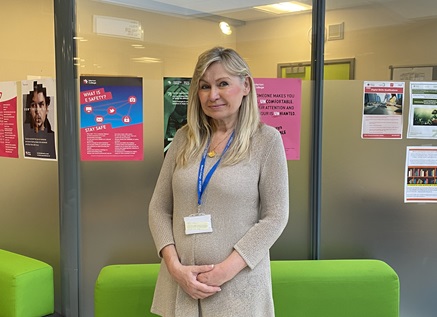Key Facts
- Starting
9 Sep 2024- Location
- Merton
- Start Date
- Sep 2024
- Level
- Level 3
- Code
- MBNX002PR

Business and Marketing Pathway Level 3
This pathway is all about what makes people tick and this understanding and skills to manage others can be a foundation applied to many careers.
Combining the subjects of Business and Marketing predominately (a third subject of your choice will be included in the course structure) provides a wide variety of progression careers including Careers in Marketing; Marketing Principles and Customer Communications
On the Business and marketing Pathway students cover this diverse subject matter by taking classes in three different subjects, where they can benefit from the coaching of specialist, industry lecturers in Business, Marketing and a third subject of their choosing.
-
Entry Requirements
We will invite you to a Meet the Teacher event where you will receive information, advice and guidance about the course you have applied for. This will be an opportunity for you to gain valuable information about the course and give you the opportunity to ask any questions you may have.5 x GCSE's at Grade 4 or above including English, mathematics and a subject in humanities. You are further required to provide a copy of your last school report showing excellent attendance to ensure we can support you to be able to achieve well on the course.
We are firmly committed to finding the right course for you to ensure you can flourish. Talk to us if you have any concerns about the application process, we are here to help take you to the next level.
-
Course Content
Within the Business element of the pathway learners' studies include: Developing a marketing campaign, business decision making, principles of management and Recruitment and Selection Process.Within the Marketing element of the pathway learners' studies include: Careers in Marketing; Marketing Principles and Customer Communications
-
Progression Next Steps
The qualification is aimed at learners who are looking to progress to employment in the sector via an apprenticeship and whose aspirations may also be to enter higher education. The qualification is fully mapped to the CIM L3 Foundation Certificate in Professional Marketing. This means that it will be recognised by employers and will support entry into this industry as a marketing executive. When combined with other Level 3 qualifications, this qualification also offers learners the opportunity to progress to a broad range of higher education programmes, including Higher National Diploma and bachelor's degrees.University Courses in: Business Marketing
The maximum UCAS Tariff points that could be generated by this combination is 168 (equivalent to 3 A levels at AAA*)
-
Additional Information
Duration and Delivery: *2 Years -
Course Structure
The pathway is run over two years and the assessment is comprised of exams and course work. Students will collect credits throughout the two-year programme and will have two opportunities to sit each exam series in January and in the summer of each year.To achieve this course, you will undertake:
BTEC L3 Extended Certificate in Business BTEC L3 Extended Certificate in Marketing
You will have a choice of a third subject, choosing out of the following:
BTEC L3 Extended Certificate in Applied Law BTEC L3 Extended Certificate in Finance BTEC L3 Extended Certificate in Applied Psychology BTEC L3 Extended Certificate in Digital Media
-
Assessment Details
Students will collect credits throughout the two-year programme using a combination of coursework and exams. Students will have two opportunities to sit each exam series in January and in the summer of each year.Synoptic assessment Synoptic assessment requires learners to demonstrate that they can identify and use effectively, in an integrated way, an appropriate selection of skills, techniques, concepts, theories and knowledge from across the whole sector as relevant to a key task. BTEC learning has always encouraged learners to apply their learning in realistic contexts using scenarios and realistic activities that will permit learners to draw on and apply their learning. For these qualifications we have identified units that contain a synoptic assessment task. Synoptic assessment should take place after the teaching and learning of other mandatory units in order for learners to be able to draw from the full range of content. The synoptic assessment gives learners an opportunity to independently select and apply learning from across their programmes in the completion of a vocational task.





